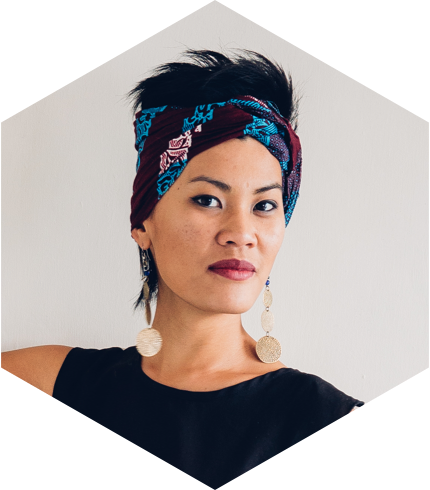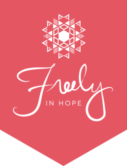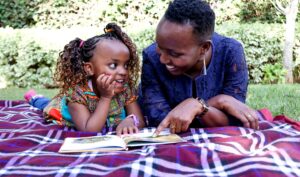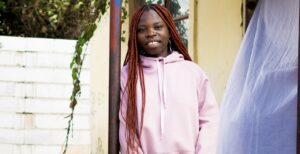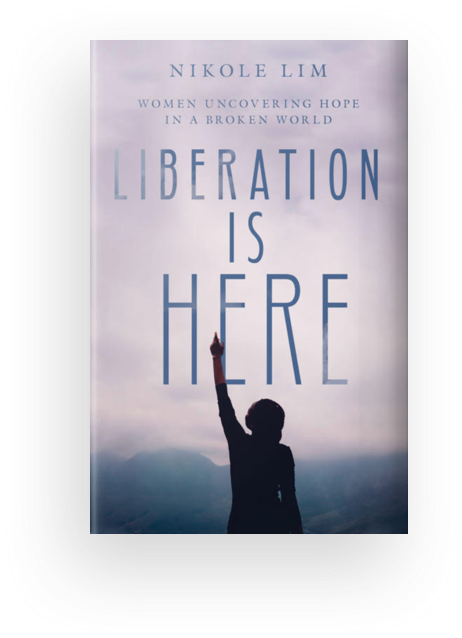
Get your signed copy for free!
Learn more about my journey of advocacy with survivors through my book, Liberation is Here. To celebrate the second anniversary, we’re giving away a free signed copy and a limited edition tumbler to all new Hope Circle Members
Ten years ago, I found myself traveling between informal settlements and rural villages in the majority-world.
I was working as an international documentary filmmaker capturing stories of hope amidst places of oppression. I was incredibly idealistic, hoping that my career in filmmaking could somehow cast light on the untold stories of the world.
But as I listened, I discovered that it was more than I could hold.
I documented stories of women who escaped their traffickers in Mumbai,
I met teenage girls trapped in a generational cycle of forced prostitution in Kolkata,
I heard stories of high school students who were raped in exchange for school fees in Kenya,
I met girls married off as young as 9 to elderly men in the Maasai Tribe,
I learned that 89% of sexual assault cases involve children in Zambia,
I learned that 1 in 3 women are survivors of sexual or domestic violence worldwide.
There, I was confronted with the reality of sexual violence, and I saw a common thread — girls who lacked access to education were more vulnerable to sexual violence. In Kenya and Zambia, primary education is free while secondary education is not. For families living on less than $1 per day, paying tuition fees for multiple children is nearly impossible. After finishing primary school, many girls are expected to marry early, get a job as a house girl, or live a subservient, domestic life without the opportunity for a career. Though access to education is supposed to be a child’s right, education is often reserved for the elite.
As I listened to the stories of these girls, they told me that their dream was to go to university — not just so that they could pursue their own careers, but so that their entire community could have options outside of poverty. They dreamed that girls would no longer suffer from the same abuse that they had. They dreamed of equal access to safe and quality education. They dreamed of liberation that went beyond their own experience. I started Freely in Hope to fund these audacious dreams.
“They dreamed of liberation that went beyond their own experience.”
Through my work, survivors in the Freely in Hope community have taught me how to be a better advocate. Here are 3 powerful ways for you to begin advocating with survivors of sexual and domestic violence:
“Telling our story is the first step toward healing.”
Too often, survivors have been told to remain silent to protect the perpetrator. Their stories aren’t believed, validated, or taken seriously. In addition to the incident of violence, survivors experience much shame and trauma because of our culture that questions what really happened. This is an unfortunate reality for survivors who deserve justice. As survivors gain the courage to tell their stories, they regain their innate power.
Rather than being silenced by the perpetrator, they reclaim their voice by telling their story according to their experience. As an advocate listening to their stories, resist the urge to ask questions or to tell them to “pray about it.” Revelation 12:11 says, ”And they have conquered him by the blood of the Lamb and by the word of their testimony.” Telling their story in a safe space is a critical process for their healing.
“We are not victims. We are survivors.”
Rape culture is real — the words we say may be unintentional, but careless comments, lack of support, and judgmental attitudes cause great harm. Many survivors are harmed emotionally and psychologically because of the myths, stigmas, and stereotypes that are dominant in a patriarchal culture. Our language plays a huge role in either perpetuating harm or shifting perspectives on sexual violence. How we respond as advocates can be critical in shaping the healing process for a survivor. When we treat survivors of sexual violence as victims, we fail to see them as leaders and overcomers with authority and autonomy over their own story. Instead of patronizing, we must uplift. Instead of pitying, we must empower. Instead of silencing, we must listen to their voices.
“You are not a voice for the voiceless.”
As advocates who desire justice, we sometimes try too hard to be a voice for the voiceless and forget that they already have a voice. We’re just not listening. Instead of speaking on behalf of survivors, our advocacy efforts must work in tandem with (not for) survivors.
By listening to their needs, their ideas, and their vision, we are invited to co-create solutions that can end sexual violence in our world. To achieve a shared vision, we must work together — survivors and advocates, men and women, community leaders and its members. We believe our united advocacy can transform the world.
“We can only bring healing to the world as we ourselves have experienced healing.”
If you or someone you know is a survivor of sexual violence, listen without judgment, offer a loving presence without the pressure to do or say anything, and encourage the survivor to get legal or mental health support. Know of the local professional resources that this person can access, offer to pay for therapy when they’re ready, and be patient in their journey toward healing. As an advocate, it’s also important to access your own care and support systems to prevent burnout. We can only bring healing to the world as we ourselves have experienced healing.
Let's Empower Survivors of Sexual Assault to Thrive
Your donation will help survivors thrive through high school and university scholarships, mental health support, safe housing, healthcare, and leadership development.
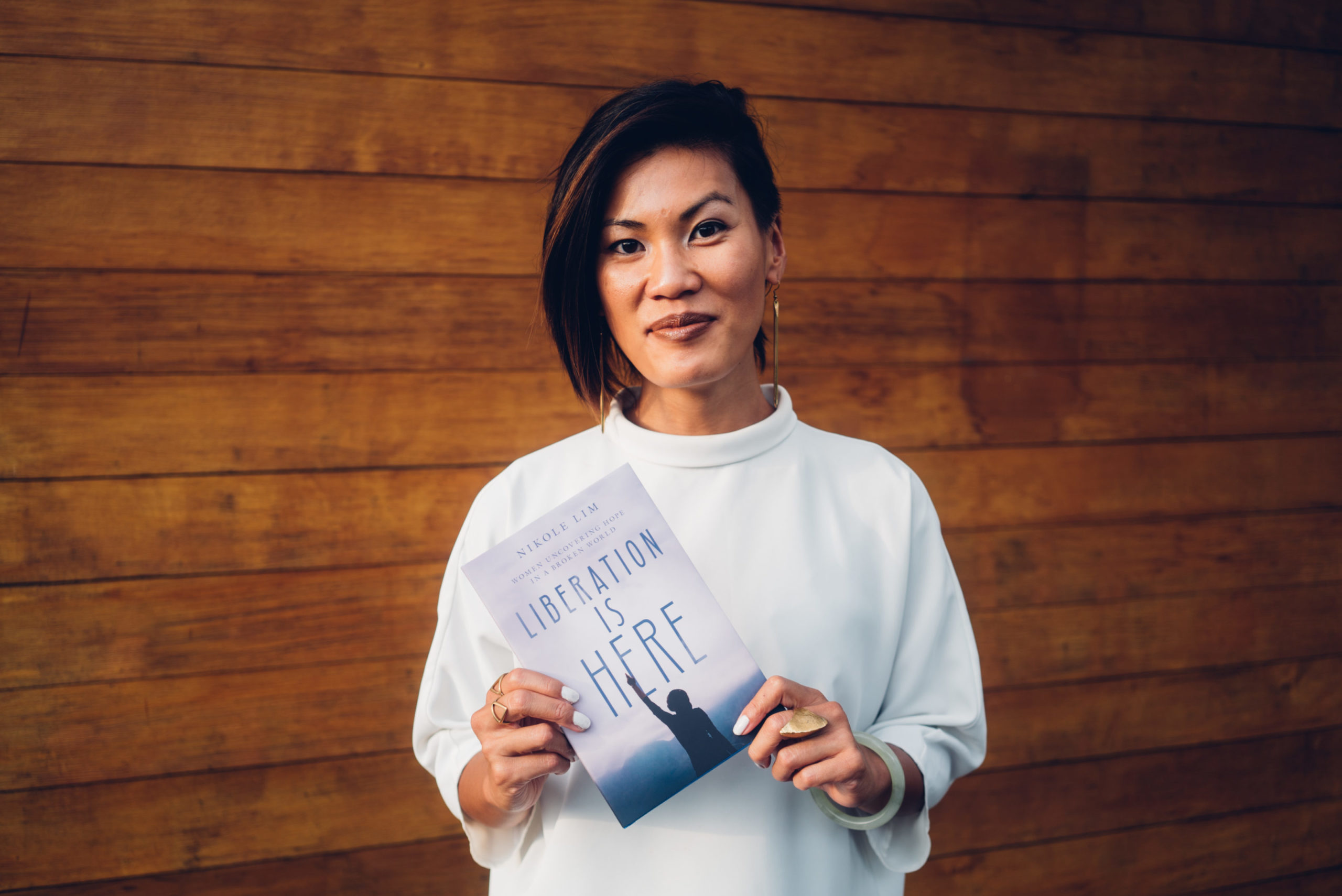
Want a sneak peak of the first chapter? Enter your email below and we’ll send it to you!
You have Successfully Subscribed!
Nikole Lim is the Co-Founder and International Director of Freely in Hope, a nonprofit organization that equips survivors and advocates to lead in ending the cycle of sexual violence. She is an educator on survivor-leadership models, restorative storytelling, and nonprofit development.
